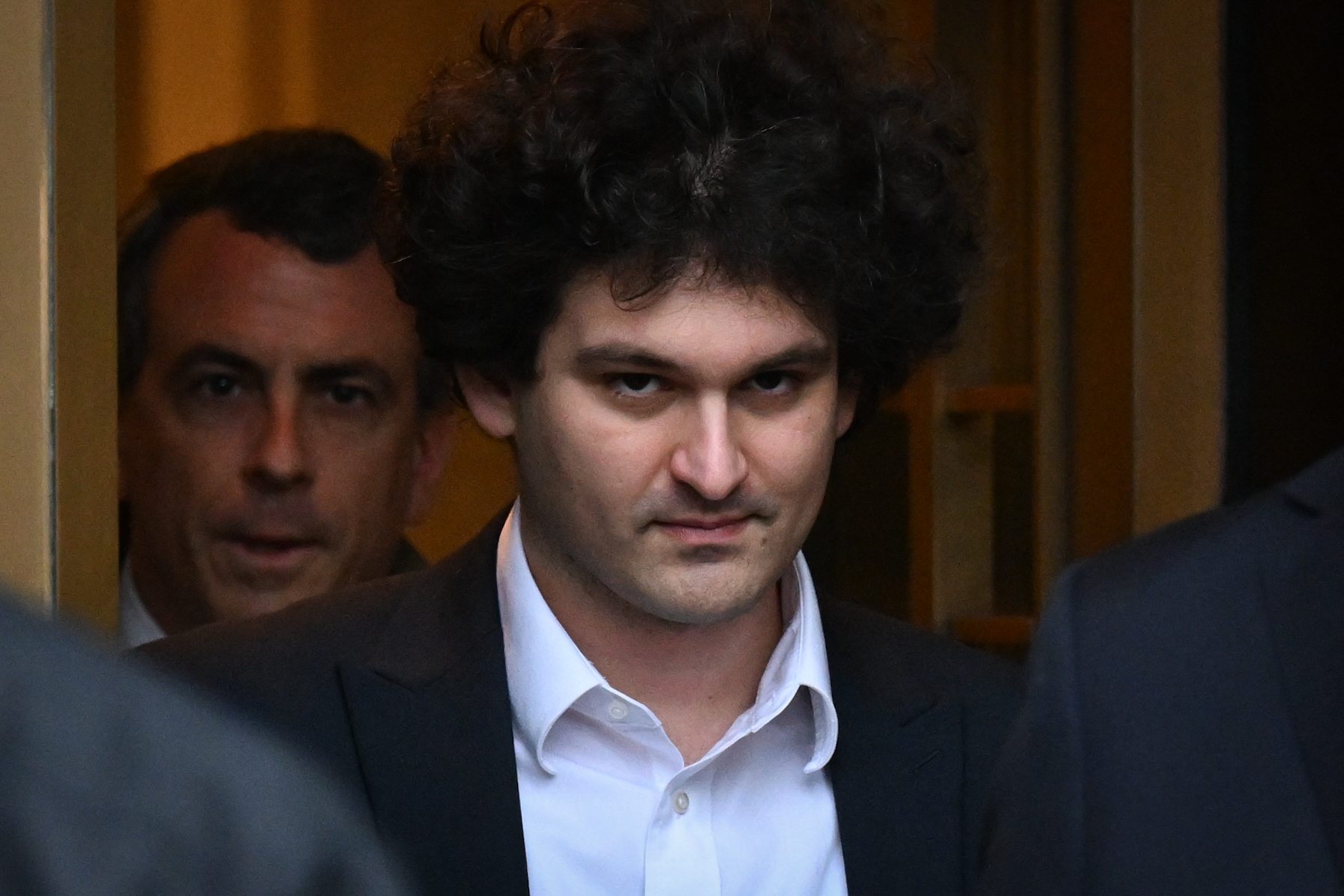[ad_1]
Welcome to Startups Weekly. Sign up here to get it in your inbox every Friday.
As I sat down to write this week’s Startups Weekly, I do what I do every week: Read every story on TechCrunch. This week, that meant reading 212 stories on the site, and you know what I’m left with? An overwhelming amount of optimism for the startup ecosystem.
As Tim reports in his piece “How to raise a Series A in today’s market,” the numbers seem pretty brutal — the total amount deployed into early-growth rounds is down 60%, and the average Series A round is down 25% from $10 million to $7.5 million.
The truth is, the 18 months before the current 18-month period, VCs were throwing money at anything with a pulse and a pitch deck. I’ve seen some truly asinine ideas raise god-awful amounts of money and that’s harmful for the entire startup ecosystem (we’ll get to that in just a moment — *cough* FTX *cough*). Bubbles are bad. The current correction is hopefully less of a popped bubble and more of a gentle deflation back into the realm of sanity.
So what’s giving me optimism? The fact that the companies that are raising cash fall within a reasonable set of business basics: They are (gasp, shock, horror) real businesses, with real traction, and a real plan and trajectory for growth.
Let me pull out some of the highlights that are giving me hope!
Sensible startups securing scratch

Image Credits: Andriy Onufriyenko / Getty Images
One of the big themes where I’m glad to see investment (once I’ve overcome my fear of VCs getting excited about climate) is in climate tech, and there was a bunch of activity on that front over the past couple of weeks. Vibrant Planet raised a $15 million Series A to help PG&E and others trim their wildfire risk, Electric Hydrogen became the green hydrogen industry’s first unicorn, and to answer the question of how much carbon pollution your product is hiding, Muir AI raised a $3.25 million seed round to find out.
Even the AI hype that’s going down at the moment seems to be different from some of the previous hype cycles. At least AI has a very clear, direct, and obvious use case, unlike some other industries that have caught VC attention over the past few years. If you’re curious about that, over on TC+, we have 10 investors talking about the future of AI and what lies beyond the ChatGPT hype.
Slightly less on the sensible — but ever-profitable — side of things was a wave of news about military and defense tech:
Venture capital is opening the gates for defense tech
SpaceX’s defense-focused Starshield satellite internet business lands first contract
Defense startup Mach Industries closes $79M Series A at $335M valuation
a16z-backed Castelion wants to mass produce defense hardware, starting with hypersonics
Moar fun-ding rounds:
Take it to the bank: Tage reports that open banking startup Stitch raises a $25 million Series A extension led by Ribbit Capital, increasing the round’s total to $46 million.
Hi, security tool! How are you today?: Kyle reports that Nexusflow raises $10.5 million to build a conversational interface for security tools.
Taking a closer look: Brian reports that Bonsai Robotics raised $10.5 million aiming for vision-based autonomy for farm equipment.
Going places

Image Credits: Haje Kamps (opens in a new window) / TechCrunch (opens in a new window)
In personal news, I finally took delivery of my Rivian R1S after being waitlisted forever! I was so proud of it, posted photos of it to Reddit, only to have 350+ strangers on the internet tell me they hated it. Oh, Reddit. On the bright side, y’all don’t have to like it, as long as I do.
Transportation saw a fair whack of interesting activity, too, with EV boat startup Arc raising $70 million in fresh funding. Having said that, it’s been a bad couple of weeks for battery factories. Ford halts work on its $3.5 billion EV battery factory, citing fears about “our ability to competitively operate the plant,” and VW bails on its plan for a $2.1 billion EV plant in Germany.
There’s been some drama at Flexport, as its ousted CEO Dave Clark strikes back, Tweeting (er, X-ing? What are we calling it these days?) that “the problems at Flexport were much more extensive than I thought they would be when I agreed to join.”
Moar news that’s going places:
It’s a human-robot tag-team effort: Kirsten reports that in the latest Cruise incident, video shows pedestrian struck by human-driven car, then run over by a robotaxi. Oof. That comes after Cruise was told by regulators to halve the number of cars it has on the road.
One by one: Rebecca reports that the Tesla Autopilot arbitration win could set a legal benchmark in the auto industry, and it isn’t a win for its autopilot shenanigans, but for its contracts and arbitration agreement. Not being able to suffer class action suits because the arbitration deal sticks is going to be rather helpful . . . to Tesla at least.
Cars? Who needs cars?: Matt reports that Honda forms the largest EV partner network in the U.S. despite not yet selling an EV in the country. It seems like the automaker has spotted an opportunity.
The silly world of crypto

Image Credits: ED JONES/AFP / Getty Images
As the FTX trial trundles along, a lot of rather daft details are coming to the forefront.
On the stand, FTX’s CTO Gary Wang admitted that he committed wire fraud, securities fraud and commodities fraud. My favorite detail was that the name Alameda Research was made up because it sounded prestigious and not crypto related. You know, the kind of naming considerations you have when you have pure intentions. If you need me, I’ll be in the headquarters of Totally Not A Scam International.
Probably the craziest story coming out of this was that, high on his FTX wave of success, SBF reportedly considered paying Trump $5 billion to not run for president.
On that note, our crypto team has a great TC+ article picking apart whether the company was built on lies from day 1, or whether it got caught up in its own success somehow. There’s also this piece, which summarizes the history of how we got into this mess. Also worth noting: Apparently the DOJ confirmed it didn’t offer any plea deals to Sam Bankman-Fried.
Moar crypto news from this week:
Fat fowl: Jacquelyn reports that Pudgy Penguins’ approach may be the answer to fixing NFTs’ revenue problems. Pudgy Penguins’ digital collectibles have generated over $400 million in transaction volume since they were released. The company raised a $9 million seed round earlier this year to bring NFT-inspired toys to market.
Worldcoin on the wane: Annie reports that Kenyan legislative committee calls for Worldcoin to shut down in the country. The company has had a rough go of it. In early August, it was ordered to stop doing iris scans but promptly ignored the order.
No arrows: It’s hard to be a crypto hedge fund at the moment, as Jacquelyn reports that Three Arrows Capital co-founder Su Zhu was arrested in a Singapore airport and sentenced to four months in prison. The hedge fund filed for bankruptcy back in 2022.
Top reads on TechCrunch this week
Tracing the IP: Zack’s report of the security researcher having his phone searched at the airport is pretty incredible. The only reason he got “busted” was that he didn’t have anything to hide: He was doing legit security research. It goes to show that sometimes the law (and the enforcement thereof) drags behind quite significantly.
In communist Russia, phone hacks you: Lorenzo reports that a company that acquires and sells zero-day exploits — flaws in software that are unknown to the affected developer — is now offering to pay researchers $20 million for hacking tools that would allow its customers to hack iPhones and Android devices. It seems that Russian hackers are getting desperate to get into phones, even as sanctions are continuing and public opinion of the country is in the toilet after its invasion of Ukraine.
Goliath backs David: Manish reports that OpenAI’s Sam Altman invests in a teenager’s AI startup automating browser-native workflows. The company raised $2.3 million.
New Pixel phone!: Y’all got pretty excited about the Google Pixel 8; our stories about ’em were all very well read. Here’s Christine’s summary article to get you up to speed.
[ad_2]
techcrunch.com




